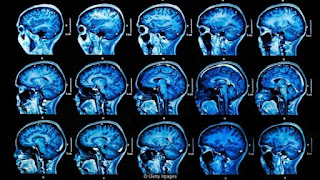Epilepsy symptoms
Epilepsy is a neurological condition.
The main symptom of epilepsy is repeated seizures. If one or
more of the following symptoms are present, the individual should see a doctor,
especially if they recur:
- a convulsion with no temperature (no fever)
- short spells of blackout, or confused memory
- intermittent fainting spells, during which bowel or bladder control is lost, which is frequently followed by extreme tiredness
- for a short period, the person is unresponsive to instructions or questions and becomes stiff
- the person suddenly falls for no clear reason
- sudden bouts of blinking and chewing without apparent stimuli and apparent reason
- for a short time the person seems dazed and unable to communicate
- the person becomes fearful for no apparent reason; they may even panic or become angry
- peculiar changes in senses, such as smell, touch, and sound
- the arms, legs, or body jerk, in babies these will appear as a cluster of rapid jerking movements
The following conditions need to be eliminated. They may
present similar symptoms and are sometimes misdiagnosed as epilepsy:
- high fever with epilepsy-like symptoms
- fainting
- narcolepsy, or recurring episodes of sleep during the day
- cataplexy, or periods of extreme muscle weakness
- sleep disorders
- nightmares
- panic attacks
- fugue states, a rare psychiatric disorder
- psychogenic seizures
To know more about Epilepsy and other Neurodegenerative Diseases, Join us at the International Conference on Alzheimers, Dementia and Related Neurodegenerative Diseases https://bit.ly/2p9olWH




Comments
Post a Comment